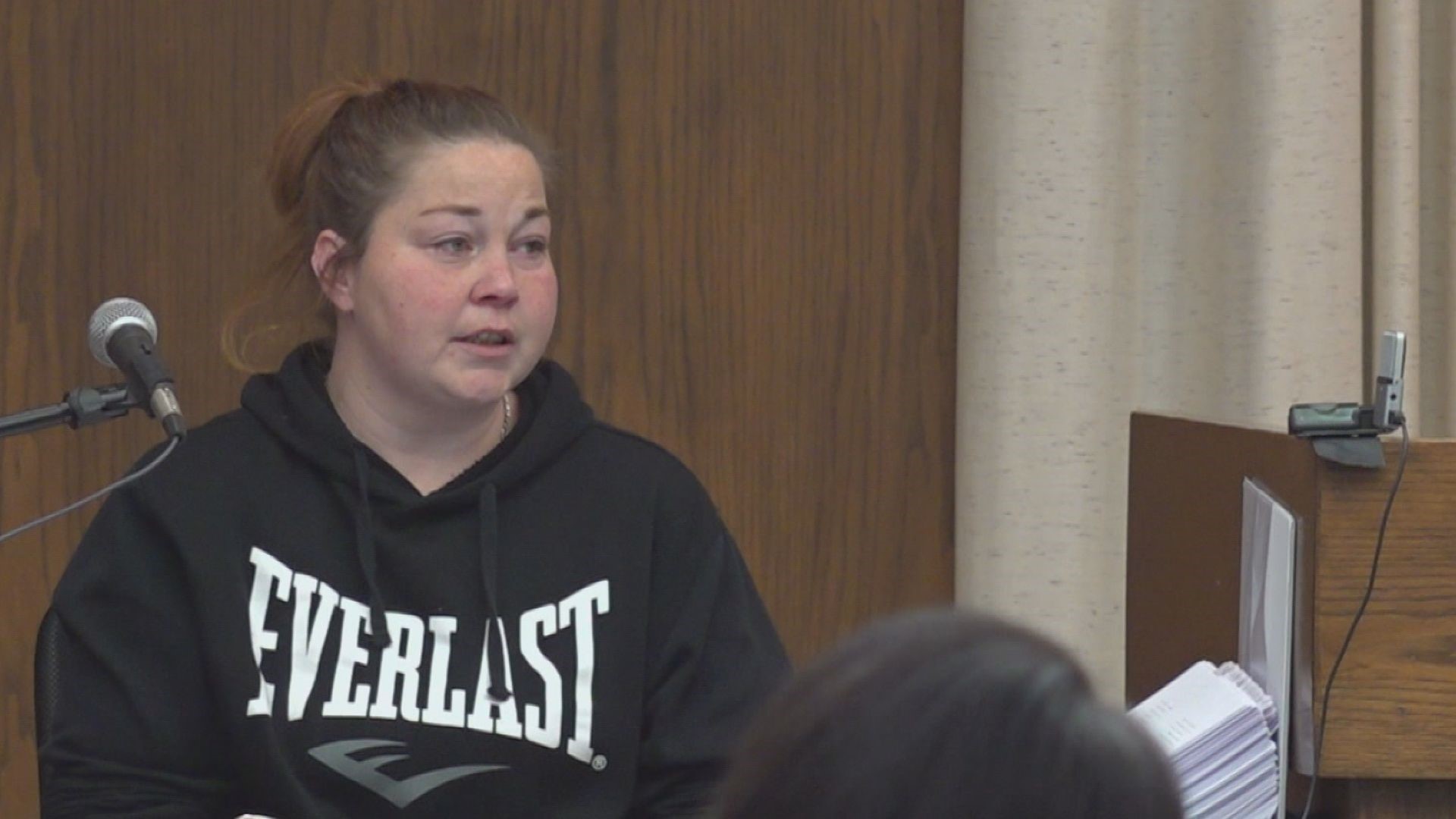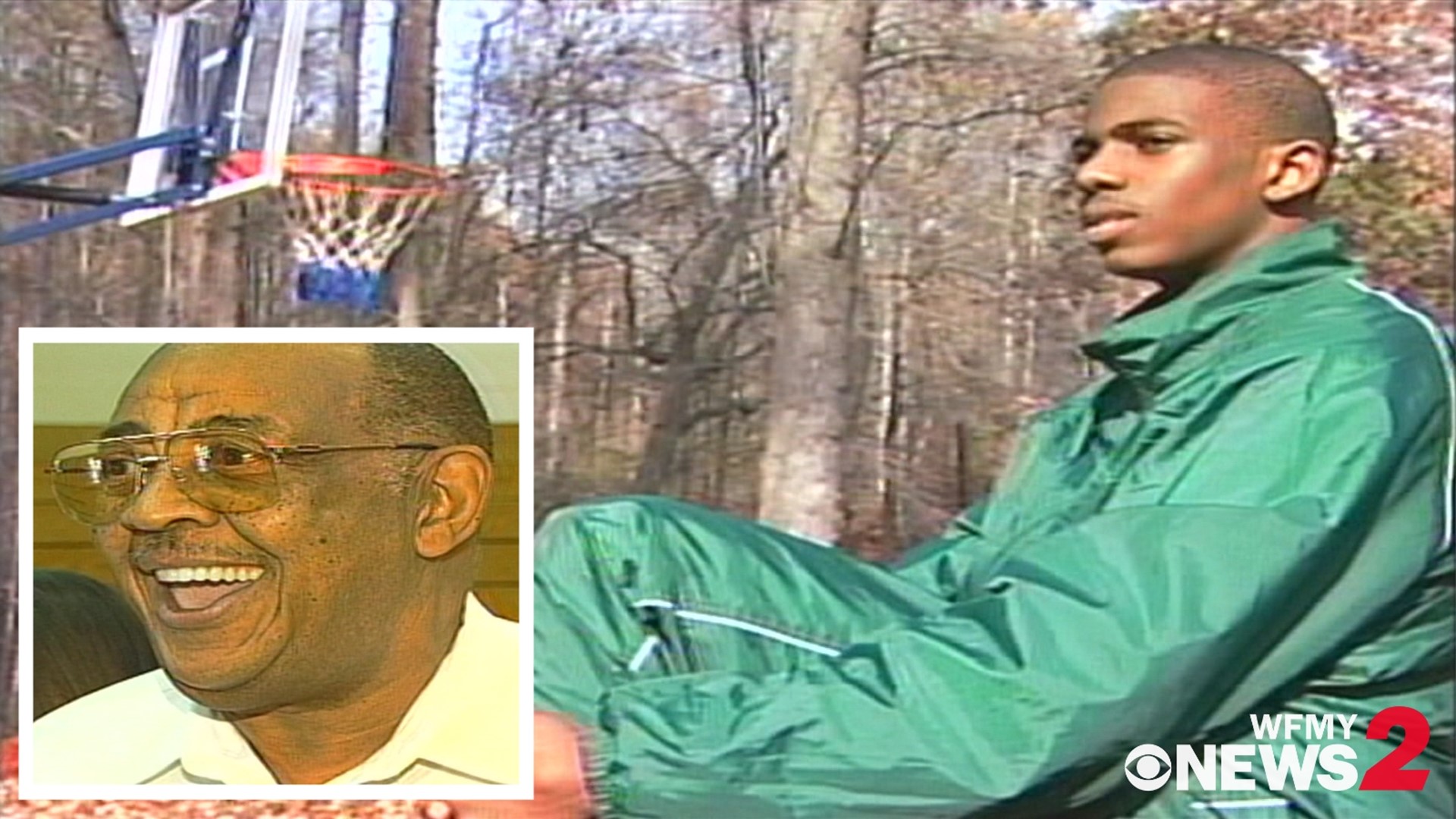WINSTON-SALEM, N.C. — Day five of hearings for the four men convicted of killing NBA star Chris Paul's grandfather are underway. A three-judge panel must decide if they are innocent of the crime that happened 20 years ago.
On Friday, the judges heard from a key witness in the case who recanted her testimony years later, saying she was coerced by law enforcement.
Jessicah Black was 16 when the crime happened. She said detectives repeatedly told her she was lying when they interrogated her, only letting up when she repeated back what they wanted to hear.
"It was just easier to tell them (police) what they wanted to hear," Jessicah Black said on the stand.
Here are some notes from Black's testimony on Friday:
- Black said she was with the men when Nathaniel Jones was killed. She said she didn't see any of them participate in the robbery or murder of Mr. Jones.
- She said she that day, she went to drive around and see if the boys were walking around outside. She said she drove around and doesn't recall who was in the group but saw some of them walking down the street and she picked them up.
- Black said they told her they needed to go home to change clothes for a party, and then after, she said there was no party and they went and rode around.
- She said she remembers they went to the mall and just rode around. She said the boys were with her the entire time.
- She said it was afternoon, after school, when she first drove around looking for the boys.
- She said they would hang out and smoke weed.
- She said after the boys changed clothes, they went back out. She said all the boys lived relatively close together.
- She said they rode around and went to Creekside.
- She said they went to the arcade area when they were there, but they weren't there long.
- She said an officer told them they had to go, and didn't remember exactly, but said someone in the group was being a little rambunctious. So they left.
- She said that night they went up a side road and they came across where Mr. Jones lived. Then they saw police lights and everything taped off.
- She said everyone was wondering what happened and they got out to see what was going on.
- She said they were told someone had been murdered.
- She said they got back in the car and she took the boys home.
- Black said a few days later, police came to her house and told her they needed to take her car for evidence.
- She said police told her she needed to go back to the station, so her grandpa dropped her off and didn't stay with her.
- She said she was taken into a room and questioned by police.
- She said they told her she was lying and they knew she was lying because the guys had spoken and had given confessions.
- She said she didn't even know the boys had been there.
- She said she was in a room full of detectives during questioning.
- She said the deputies threatened her with going to prison for life.
- She said the more she answered detectives with what they wanted, they backed off of her.
- She said it seemed like it was easier to say what they wanted, so she could go home.
- She said she was never asked if she wanted a parent present. She said she didn't feel free to leave and they didn't offer either.
How we got here:
Paul's grandfather, 61-year-old Nathaniel Jones, was found beaten to death in the carport of his Winston-Salem home in November 2002 - one day after he'd seen his grandson commit to playing basketball for Wake Forest University.
Two years after the killing, brothers Rayshawn Banner and Nathaniel Cauthen were convicted of murder and robbery.
In 2005, police arrested three others.
All five were teenagers at the time of Jones' death, and all have stood by their innocence. They'd later be known as the 'Winston-Salem 5.'
One of the men convicted, Dorrell Brayboy, died in 2019. He was stabbed shortly after he was released from prison. His record could be expunged posthumously, but only if the four other defendants are found innocent.
In 2020, an eight-member panel of the North Carolina Innocence Inquiry Commission held a hearing to review the claims.
At that hearing, a key witness recanted her testimony, saying she lied in court because she was coerced by law enforcement.
The commission found sufficient evidence of innocence to have the case reviewed, and as a result, the exoneration hearings began Monday in Winston-Salem.
Who are the Winston-Salem 5 and where are they now?
- Brothers Nathaniel Cauthen and Rayshawn Banner are still incarcerated. Both were sentenced to life in prison. During the initial trial, they were found guilty of first-degree murder and robbery with a dangerous weapon.
- Christopher Bryant and Jermal Tolliver spent 12 years in prison before being released in recent years. During the initial trial, they were found guilty of second-degree murder and common law robbery.
- Dorrell Brayboy died in a stabbing in 2019 following his release from prison.
Here's a recap of each day of the hearing:
Thursday: Jermal Tolliver took the stand. He said he lied to detectives back then, claiming he told them what he thought they wanted to hear.
"I just want you to know that no matter how this turns out, I still didn't do it and none of my codefendants either," Tolliver told the judges.
Wednesday: An attorney for the Innocence Commission took the stand for the third day in a row. She said she found inconsistencies in the initial investigation, including evidence of fingerprints lifted from Jones' car the day of the murder. She said none of the fingerprints matched those of the convicted teens.
Tuesday: A forensic psychologist said the men, at the time of the murder, showed signs of intellectual disabilities.
"They were 14 and 15 years old but functioning like 8- and 10-year-olds," Dr. Ginger Calloway said.
The three-judge panel also heard from a shoe impressionist expert, who said evidence of a Nike Air Force One shoe print from the case was "misleading."
Monday: The hearing began. The state argued just one person couldn't have been responsible for Jones' death and that the five convicted teens had a "collective, more than 140 contacts with law enforcement."


